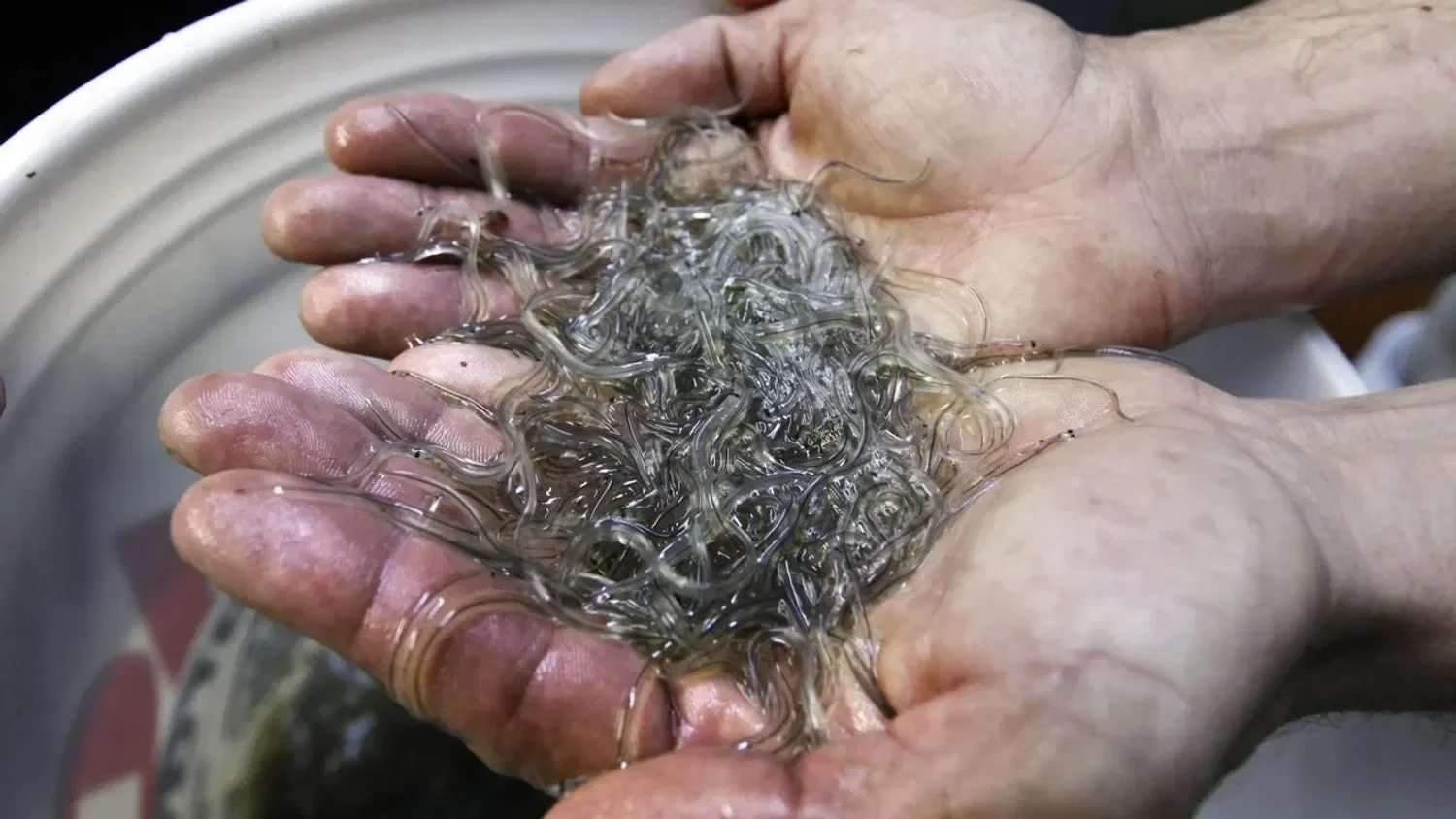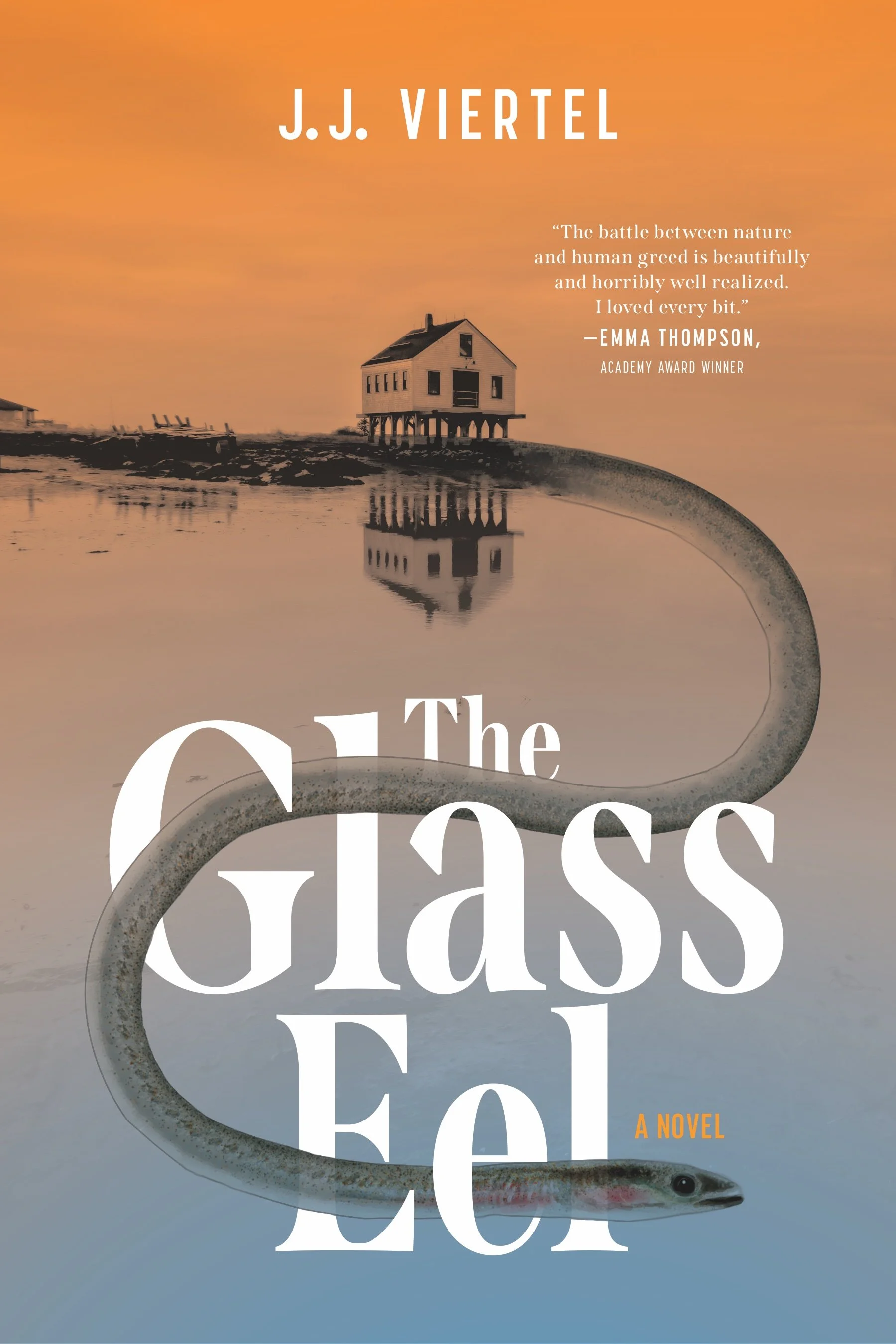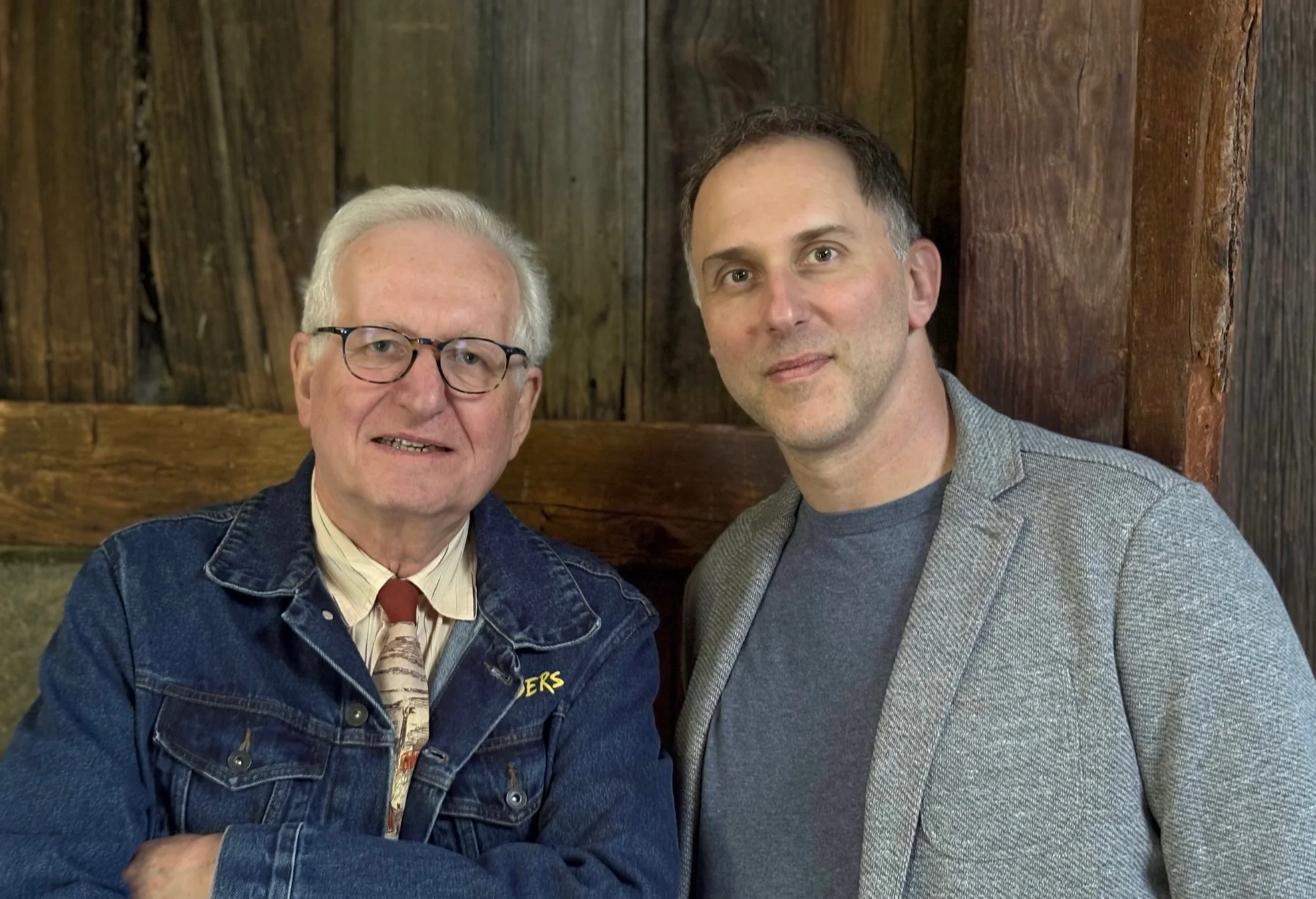The coast of Maine. A cache of black-market baby eels that will fetch thousands, a dead man in a creek, and an ex-husband who is nowhere to be found. Can Jeanette King unpack the deadly business that’s entangling her and make things right – or at least survive?
In this gripping debut thriller, struggling divorcée Jeanette King becomes embroiled in a criminal ring when she discovers her ex-husband’s cache of elvers—two-inch-long baby eels that fetch $2000 a pound on the black market.
Caterpillar Island is off the central coast of Maine—beloved vacationland of lobster bakes and quaint fried clam shacks, kayaking and country houses. At night, though, by the light of a headlamp, the island is alive with cash, guns, and poachers. Oxy addicts, struggling retirees, and unemployable deadbeats dip their nets in the creeks to catch elvers which are smuggled to Korea where they are raised then processed into unagi for the international sushi market.
Into this dark and dangerous world falls Jeanette King, who has, up to this moment, been earning her meager living mainly by picking and packaging peekytoe crab meat for shipment to New York and Boston. As Jeanette gets drawn into a fast moving story of risk and violent consequences she enlists the aid of a local policeman and an Indigenous activist. Together they try to set things right for the people and the planet, but the deeper they dig the more dangerous things get. An ensuing procession of colorful locals, corrupt state politicians, and treacherous outsiders weaves a tale that reveals the underbelly of a deadly business.
Glass eels in the news
Inside the Slimy, Smelly, Secretive World of Glass Eel Fishing
The New Yorker
In Maine, Fishing for Tiny Eels and Big Profits
The New York Times
Maine’s baby eel fishermen have slowest season in years
Bangor Daily News
Wriggling gold: Fishermen who catch baby eels for $2,000 a pound hope for many years of fishing
The Associated Press
‘I’ll be the last man standing’: Tensions resurface in Nova Scotia glass eel fishery
Global News Canada
Transport company charged in $250K glass eel seizure
CBC
From the authors
The number one question we get asked is: how did you manage to write a book together?
The black market elver trade on the Maine coast was something Josh had been tracking, and it struck him as an unusual and little-known criminal enterprise that would lend itself to a number of virtues: atmosphere, colorful characters, the contrast between local Mainers and the summer folk “from away,” and a look at how the natural world gets invaded by human greed and recklessness, and how, where we hurt the environment, we tend to hurt the people (and vice versa).
Jack suggested we turn it into a novel. So we did the only thing that made sense: We started meeting once a week for lunch at a Szechuan restaurant, working our way through the menu. Jack would not allow us to order duck tongues, tripe, or frog legs, and Josh suffered their absence. As we ate, we talked over who these people in the story might be, how they might get into trouble, and how they might get out of it.
One time, Jack tried to smoke a cigar after lunch and set a trash can on fire on 35th street. Josh doused it efficiently. Things were going well.
We were influenced by the books we’d read from Raymond Chandler to Carl Hiaasen, and by the best that television had to offer in the way of thrillers that were not police procedurals. We wanted this story to be about civilians, not cops or P.I.s on a chase. Once we settled on a cast of characters, we set about plotting and writing at the same time. This was a ridiculous process because the good writing sometimes led us down blind alleys, and we needed to find a way out; a number of good scenes and plot twists that couldn’t untwist disappeared during the process, but in the end, we were left with a book that we like a lot. For us, that’s how the process works.
We both have intense jobs that we love, so we carved out a standing meeting once a week on Google Meet, and wrote after work. We figured out what needed to be done, and assigned ourselves sections. Each of us wrote – Jack more of the dialogue scenes and Josh more of the passages on the natural world – and then we read, edited, rewrote and gently disputed what the other had written. We let the best idea win. Our most heated conversations were about what to order at the Szechuan place.
Once a draft was done, we’d find time to sit on a sofa together, resolve whatever was out of whack, and then go at it again. By the fourth draft, we had gotten pretty good at making the most of the process. Finally, sitting together after many months of work, we looked at each other and said, “It’s done.” And it was. We toasted with a flask of Allen’s Coffee Brandy, the most popular alcohol in Maine, which, incidentally, is terrible.
Being done hasn’t stopped the weekly meetings and collaboration through the cloud. After all, there are other books to write.
Contact
Media inquiries
Tanya Farrell, Wunderkind PR
Julia O’Connell, Mysterious Press
Contact the authors
jjviertels@gmail.com


